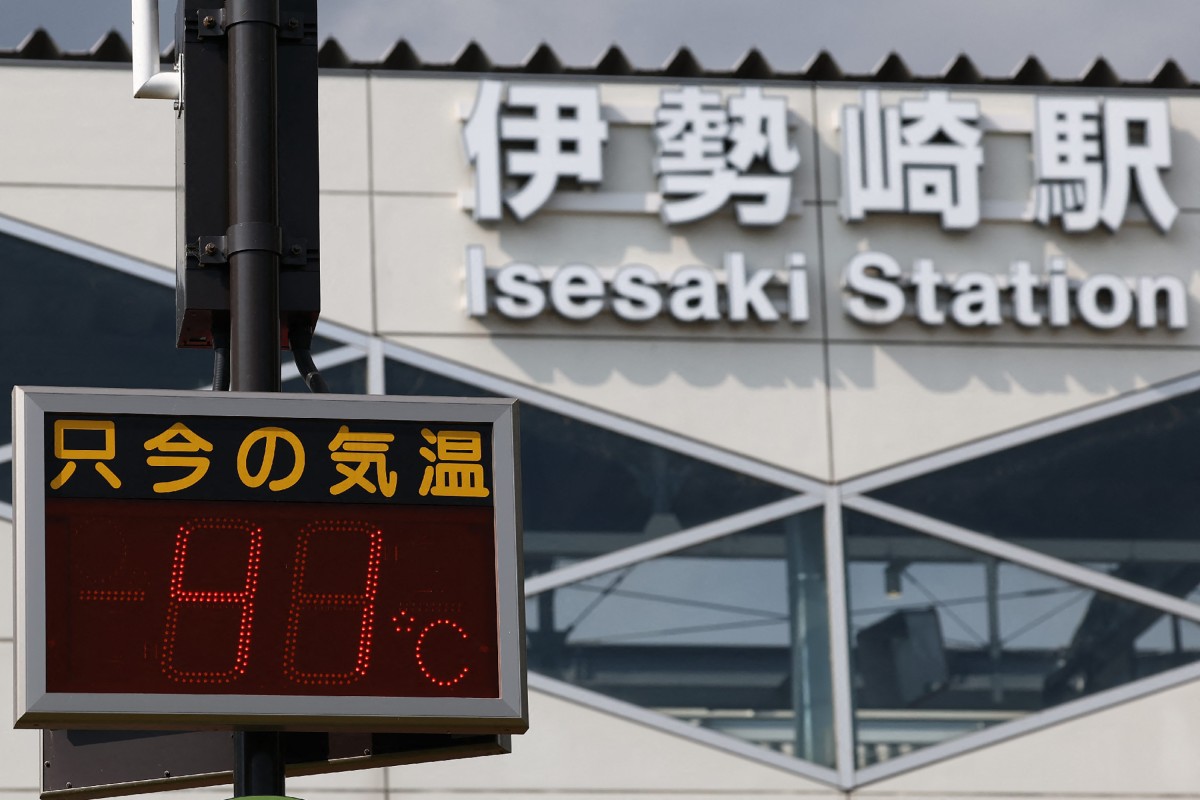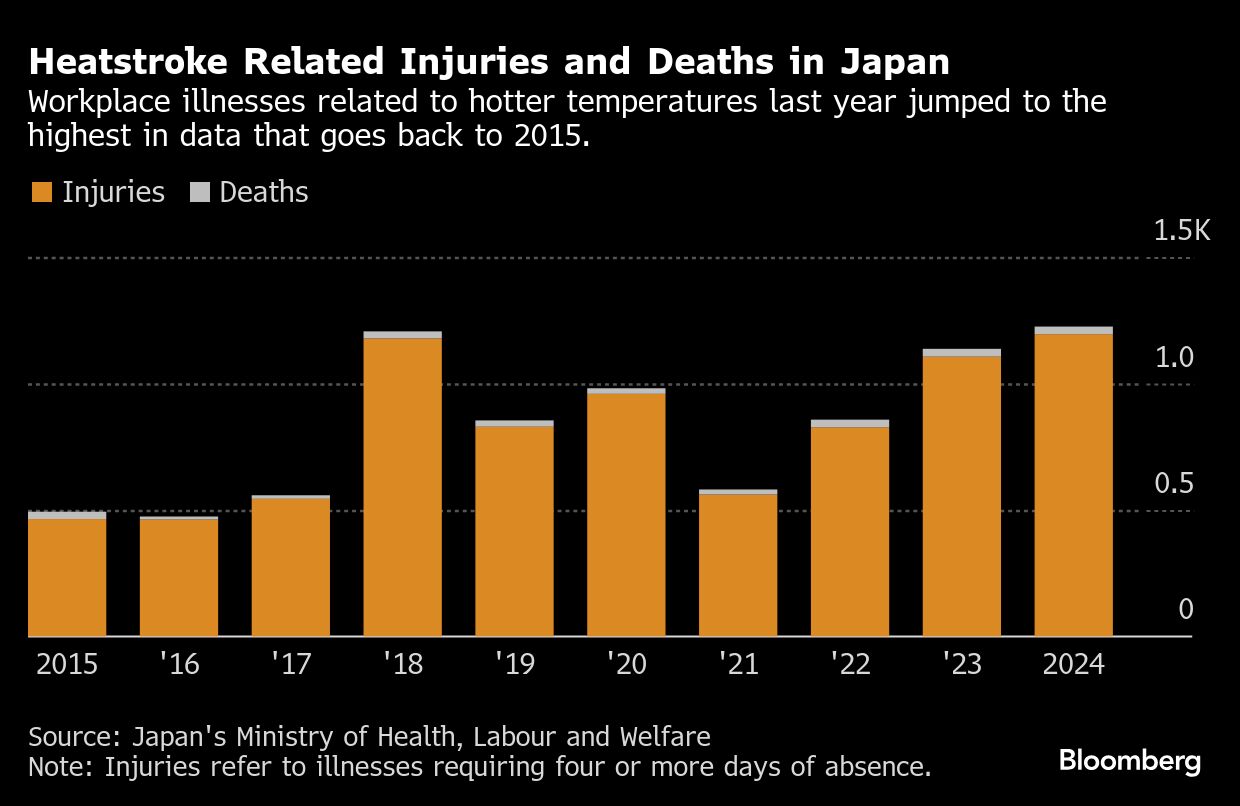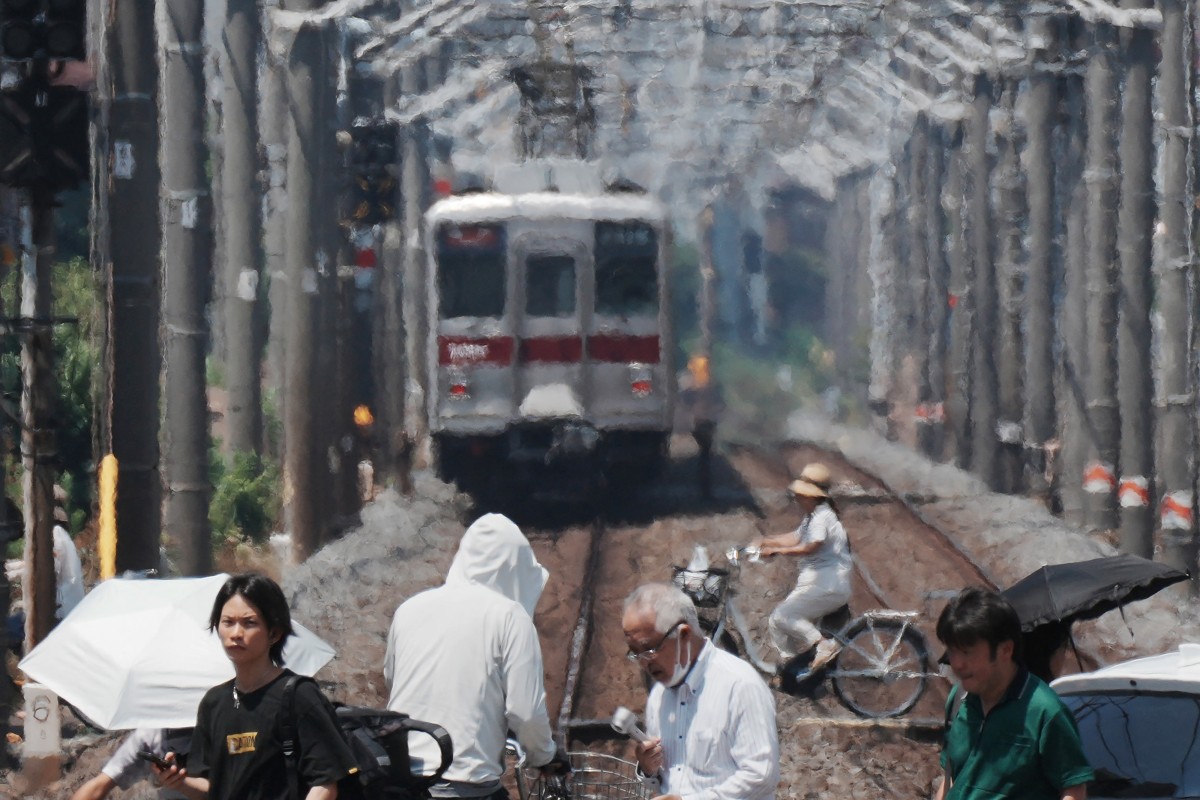
Japan’s Prime Minister Shigeru Ishiba pledged to boost public health protections as the country grapples with a severe heat wave that has seen the national temperature record broken twice in recent days.
Temperatures in Isesaki city, about 90 kilometers northwest of Tokyo, rose to 41.8C on Tuesday, according to the Japan Meteorological Agency. That followed a reading of 41.2C in Hyogo prefecture, in western Japan, on July 30, which topped a previous extreme first recorded in 2018.
“We ask that relevant government agencies closely coordinate efforts, monitor progress, and implement all possible measures,” Ishiba said Thursday, at a meeting in Tokyo with officials including Environment Minister Keiichiro Asao.
More air conditioners should be installed in school gymnasiums to help protect children and also as the locations often act as evacuation sites, Ishiba said. Officials should also promote the use of cooling shelters in communal spaces like libraries to help reduce risks from heatstroke, particularly in the nation’s elderly, he said.
ALSO READ: Japan sets record high temperatures, worries mount over rice crops

More than 2,000 people died from heatstroke in Japan in 2024, which is roughly comparable to the number of fatalities from traffic accidents, according to Ishiba. Of those, 80 percent of deaths in Tokyo were among the elderly, and 80 percent involved people who were not using air conditioning, he said.
A total of 9,507 people were sent to hospital emergency rooms due to heatstroke in the week of July 28, the third highest total this summer, according to preliminary data from the Fire and Disaster Management Agency.
Since June, Japan’s government has taken a tougher stance on protecting workers who are exposed to extreme heat, implementing revised rules that will see employers fined if they fail to provide adequate precautions.

In addition to human health, heat waves in Japan this summer have had an impact on livestock and crops like rice, according to Masahiro Watanabe, a professor at the Atmosphere and Ocean Research Institute, the University of Tokyo. “This widespread influence was beyond expectation,” he said.
Hotter temperatures are also adding to electricity demand for cooling. Natural gas power generation in Tokyo on Wednesday rose to the highest level in 17 months, according to data compiled by Bloomberg.
Governments globally are contending with the impacts of more extreme and less predictable weather on both populations and economies. Year 2024 was the hottest year on record and for the first time breached the 1.5C threshold identified by almost all countries in 2015 as a crucial long-term target for limiting planetary warming.
READ MORE: Japan logs hottest July for third year in a row
Individuals need to closely monitor heatstroke advice and should aim to use air conditioning, hydrate and consume salt, Ishiba said.


